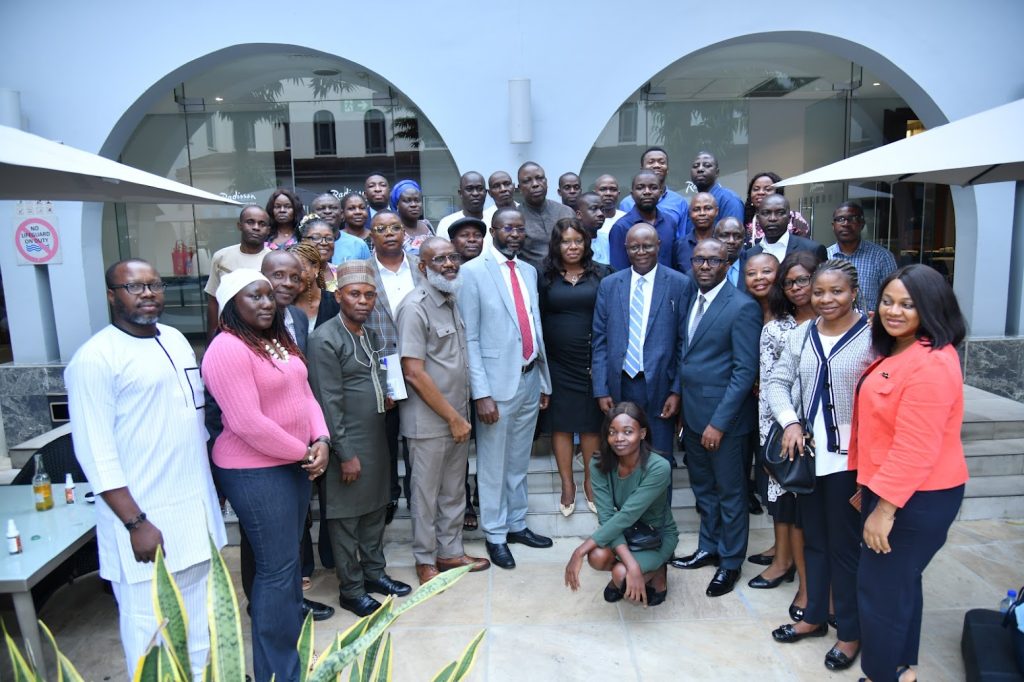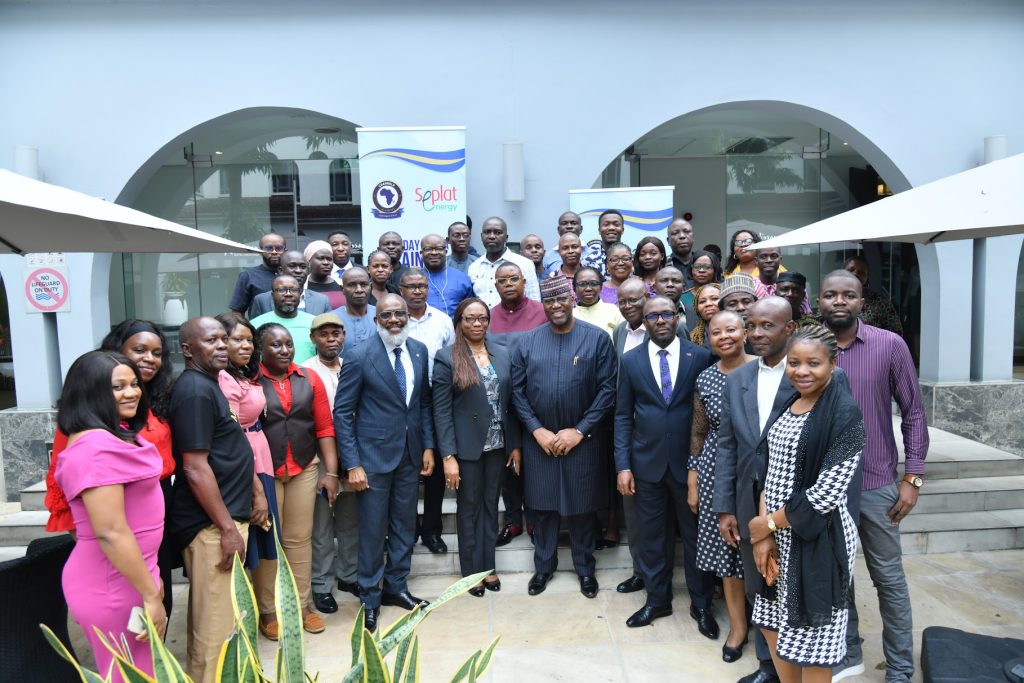News
Seplat Energy Concludes Phase 2 Media Training for Capital Market Editors/Correspondents, Others
AJAGBE ADEYEMI TESLIM
SPONSORED BY: H&H
Seplat Energy Plc, leading Nigerian indigenous energy company, has concluded the second phase of its media training programme for journalists and media practitioners in Nigeria.

A cross section of Seplat Energy management led by the General Manager, Partner Relations, Grace Amadi and Manager Corporate Communications, Stanley Opara; Channels Academy management led by Chairman, John Momoh and General Manager, Kingsley Uranta; with resource persons and media practitioners, during the Second Phase of the Seplat Energy Media Training Programme held in Lagos recently.
The second phase of the programme covers forty-five (45) Capital Market Editors/Correspondents as well as some Judiciary and Business writers.
The media training programme, which was organised in partnership with Channels Academy, is aligned with Seplat Energy’s corporate goal of creating value for its media stakeholders and ensuring best practices in Nigeria’s media industry.
Core capital market issues and case studies were brought to the fore alongside general business practices and overriding regulatory and legal frameworks.
The modules for the 2-day training programme, included: The Intersection of Law, Capital Markets and Business; Reporting Skills and Best Practices; Data Analysis and Interpretation; as well as Ethical Dilemmas and Professional Standards.

A cross section of Seplat Energy management led by the Deputy General Counsel, Mr. John Aga and Manager Corporate Communications, Stanley Opara; Channels Academy management led by the General Manager, Kingsley Uranta; with resource persons and media practitioners, during the Second Phase of the Seplat Energy Media Training Programme held in Lagos recently.
Insights were also shared on Regulatory Frameworks and Compliance, Market and Legal Risk Management, Investigative Reporting Techniques and Leveraging Technology in Journalism.
In attendance at the training were media professionals from print, electronic and online platforms.
Addressing attendees at the training, the General Manager, Partner Relations at Seplat Energy, Mrs. Grace Amadi, who represented Chioma Afe, Director External Affairs & Social Performance, noted that the training is a demonstration of Seplat Energy’s commitment to the continuous empowerment of journalists and the media as a whole, as partners in progress.
The Founder/Chairman of Channels TV, who is also the Chairman of the Channels Academy, John Momoh, expressed delight at the collaboration between Seplat Energy and the Channels Academy and called for more of such synergy towards the upliftment and empowerment of the media.
The Deputy General Counsel at Seplat Energy, Mr. Joan Aga, who also graced the event, reiterated that as the Fourth Estate of the realm, duly recognized and empowered by the Constitution, the media is in the right position to shape public opinion through balanced stories. Aga described the media industry as critical stakeholders to Seplat Energy’s business and stressed Seplat Energy’s commitment to supporting its growth.
The Manager, Corporate Communication at Seplat Energy, Mr. Stanley Opara, lauded media practitioners for their commitment to knowledge acquisition, passion and continuous support to the Seplat Energy brand over the years. According to him, Seplat Energy will continue to seek more avenues to partner with the media in a bid to promoting excellence.
Recall that the first phase of the Seplat Energy media training programme, conducted for Energy and Judiciary Correspondents and Editors, was held between 12th and 14th June, 2024.
Responding, the media professionals under the aegis of the Capital Market Correspondents Association of Nigeria (CAMCAN) and the National Association of Judicial Correspondents (NAJUC), extoled Seplat Energy for its commitment to the advancement of Nigeria’s media industry.
The media practitioners congratulated the company for its market performance over the years and demonstration of leadership among indigenous energy players in Nigeria, whilst calling on other corporates to emulate Seplat Energy’s governance stance and commitment to success.
